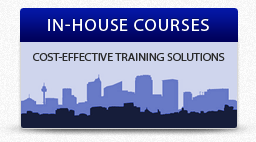ARCHIVE NEWS
ISO 14001:2015 – The Revision Process so far: Preparing for the Changes & Implications
With the revision of ISO 14001 at its Draft International Standard (DIS) stage, the comment period is drawing to a close and those submitted will be reviewed in February 2015, after which time a Final Draft International Standard (FDIS) will be issued.
Although the revised standard is not due to be published until the end of 2015, many organisations are looking to be ahead of the game. Organisations will have, (as recently announced by the IAF General Assembly), a three year grace period from the date of publication in which to implement the changes to the ISO 14001 requirements. It makes good business sense to be planning ahead as, depending on the size of the organisation, changes to business processes and management systems is not something easily achieved overnight!
As the leading body representing the environmental and sustainability professions at all levels, IEMA’s technical experts have been at the forefront of the international discussions formulating the revised standard. Leading the way for organisations implementing the changes, IEMA has taken the initiative to introduce a Transition Course to support organisations in the move from the 2004 standard to the 2015 version. The transition course will be delivered by iemaSTS Registered Centres (IEMA-approved training organisations) – of which Excel Partnership is one - and by approved trainers to assist organisations and auditors in understanding the changes to ISO 14001:2015 and their implications.
- As well as being brought in line with the high level structure of Annex SL, ISO 14001:2015 is seen as contributing to the ‘environmental pillar’ of sustainability.
- The revised standard emphasises the importance of raising the profile of environmental management into the core business objectives and encourages organisations to move away from viewing EMS as simply a ‘bolt on’ to existing systems.
- ISO 14001:2015 will require organisations to have a better understanding of their internal and external organisational context, the links to this with their interested parties and the overall scoping of the EMS.
- It will require organisations to ensure risk is managed more effectively through the evaluation of associated threats and opportunities.
- There is also a shift to focus on improving the environmental performance of the organisation rather than the management system itself.
- Requirements of ISO 14001 – changes from 2004 to 2015
- Organisational context and risk
- Integration into core business processes
- Implications for existing management systems and processes
- Applying the IEMA Gap Analysis Tool
- Planning the implementation of required changes
Excel’s ISO 31000:2009 Fundamentals of Risk Management 1-day course, whilst being applicable to all management systems, is complimentary to Environmental Management Systems, and will assist organisations in developing a general understanding of establishing organisational context and managing risk:
For further details of Excel’s in-house training or if you’d like to discuss your requirements and request a proposal, please contact us (tel: +44(0) 1428 751027).











